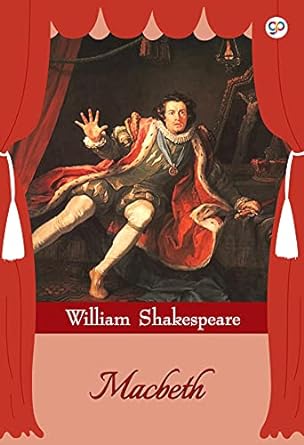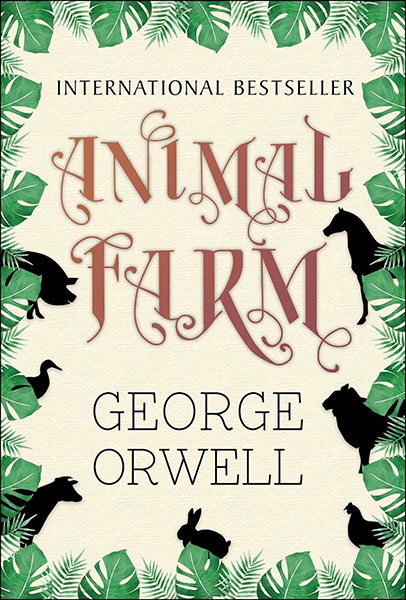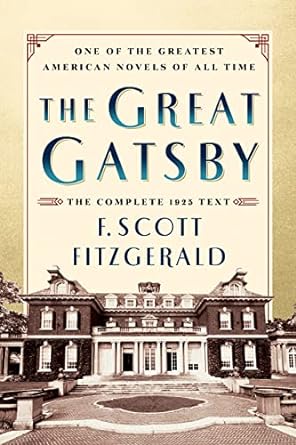
Macbeth
Shakespeare's Macbeth is one of the greatest tragic dramas the world has known. Macbeth himself, a brave warrior, is fatally impelled by supernatural forces, by his proud wife, and by his own burgeoning ambition. The play is set in Scotland. Returning from battle with his companion Banquo, the nobleman Macbeth meets a group of witches. They predict that Macbeth will first become thane (baron) of Cawdor and then king of Scotland. Urged on by Lady Macbeth, his wife, Macbeth murders King Duncan. But Duncan's sons, Malcolm and Donalbain, escape. Macbeth then seizes the throne of Scotland. But Macbeth has no peace. In a bid to prevent Banquo's descendants from becoming kings according to the witches' prophecy, Macbeth arranges for him to be murdered, along with his son Fleance. Macbeth's men kill Banquo, but Fleance escapes. Haunted by Banquo's ghost, Macbeth seeks counsel from the witches. They tell him to beware of Macduff, another Scottish nobleman. Macbeth is now hardened to killing. He orders the murder of Macduff's wife and children. By contrast, Lady Macbeth, who had encouraged her husband to embark upon his path of slaughter, goes mad with guilt and dies. Macduff's army attacks Macbeth's forces. Macduff meets Macbeth in single combat and kills him. Malcolm, Duncan's son, is then proclaimed king of Scotland.
BEST DEALS
About the Author
William Shakespeare (baptised 26 April 1564) was an English poet and playwright, widely regarded as the greatest writer in the English language and the world's pre-eminent dramatist. He is often called England's national poet and the 'Bard of Avon' (or simply "The Bard"). His surviving works consist of 37 plays, 154 sonnets, two long narrative poems, and several other poems. His plays have been translated into every major living language. Shakespeare was born and raised in Stratford-upon-Avon. Scholars believe that he died on his fifty-second birthday, coinciding with St George’s Day. At the age of 18 he married Anne Hathaway, who bore him three children: Susanna, twins Hamnet and Judith. Between 1585 and 1592 he began a successful career in London as an actor, writer, and part owner of the playing company the Lord Chamberlain's Men, later known as the King's Men. He appears to have retired to Stratford around 1613, where he died three years later. Shakespeare produced most of his known work between 1590 and 1613. His early plays were mainly comedies and histories, genres he raised to the peak of sophistication and artistry by the end of the sixteenth century. Next he wrote mainly tragedies until about 1608. He was a respected poet and playwright in his own day, but his reputation did not rise to its present heights until the nineteenth century. The Romantics, in particular, acclaimed Shakespeare's genius, and the Victorians hero-worshipped Shakespeare. In the twentieth century, his work was repeatedly adopted and rediscovered by new movements in scholarship and performance. His plays remain highly popular today and are consistently performed and reinterpreted in diverse cultural and political contexts throughout the world.
Read Sample
Characters in the Play
DUNCAN, King of Scotland.
MALCOLM, Duncan’s elder son.
DONALBAIN, Duncan’s younger son.
MACBETH, Thane of Glamis, then of Cawdor; later, King of Scotland.
LADY MACBETH; later, Queen of Scotland.
A medical DOCTOR attending her.
An ATTENDANT-GENTLEWOMAN.
BANQUO, a Scottish thane, and BANQUO’S GHOST.
FLEANCE, Banquo’s son.
MACDUFF, Thane of Fife.
LADY MACDUFF.
SON of the Macduffs.
LENNOX, ROSS, ANGUS, CAITHNESS and MENTEITH, Scottish thanes.
SEYWARD, Earl of Northumberland.
YOUNG SEYWARD, his son.
An English DOCTOR.
SEVERAL MURDERERS.
SEYTON, Macbeth’s servant.
HECCAT, goddess of the witches.
THREE WITCHES (the Weyward Sisters) and THREE OTHER WITCHES.
THREE APPARITIONS and VARIOUS SPIRITS.
An OLD MAN.
LORDS, THANES, ATTENDANTS, SERVANTS, a MESSENGER, a STEWARD and SOLDIERS (including a CAPTAIN, a DRUMMER and TRUMPETERS.)
Locations: Scotland; England; Scotland again.
Act 1
Scene 1. Open ground. Thunder and lightning.
Enter THREE WITCHES.
WITCH I : When shall we three meet again?
In thunder, lightning, or in rain?
WITCH 2 : When the hurly-burly’s done;
When the battle’s lost, and won.
WITCH 3 : That will be ere the set of sun.
WITCH I : Where the place?
WITCH 2 : Upon the heath.
WITCH 3 : There to meet with Macbeth.
WITCH I : I come, Gray-Malkin.
WITCH 2 : Padock calls.
WITCH 3 : Anon!
ALL : Fair is foul, and foul is fair;
Hover through the fog and filthy air.
[Exeunt.
Scene 2. A camp near Forres.
Alarum within. Enter KING DUNCAN, MALCOLM, DONALBAIN, LENNOX and ATTENDANTS, meeting a bleeding CAPTAIN.
DUNCAN : What bloody man is that? He can report,
As seemeth by his plight, of the revolt
The newest state.
MALCOLM : This is the sergeant
Who, like a good and hardy soldier, fought
’Gainst my captivity. – Hail, brave friend!
Say to the King the knowledge of the broil
As thou didst leave it.
CAPTAIN : Doubtful it stood,
As two spent swimmers that do cling together
And choke their art. The merciless Macdonwald
(Worthy to be a rebel, for to that
The multiplying villainies of nature
Do swarm upon him) from the Western Isles
Of kerns and gallowglasses is supplied,
And Fortune, on his damnèd quarrel smiling,
Showed like a rebel’s whore; but all’s too weak:
For brave Macbeth (well he deserves that name),
Disdaining Fortune, with his brandished steel,
Which smoked with bloody execution,
Like Valour’s minion carved out his passage
Till he faced the slave;
Which ne’er shook hands, nor bade farewell to him,
Till he unseamed him from the nave to th’chops,
And fixed his head upon our battlements.
DUNCAN : O valiant cousin! Worthy gentleman!
CAPTAIN : As whence the sun ’gins his reflection,
Shipwracking storms and direful thunders break;
So, from that spring whence comfort seemed to come,
Discomfort swells. Mark, King of Scotland, mark!
No sooner justice had, with valour armed,
Compelled these skipping kerns to trust their heels,
But the Norweyan lord, surveying vantage,
With furbished arms and new supplies of men,
Began a fresh assault.
DUNCAN : Dismayed not this
Our captains, Macbeth and Banquo?
CAPTAIN : Yes;
As sparrows, eagles; or the hare, the lion.
If I say sooth, I must report they were
As cannons overcharged with double cracks,
So they doubly redoubled strokes upon the foe:
Except they meant to bathe in reeking wounds,
Or memorize another Gólgotha,
I cannot tell…
But I am faint; my gashes cry for help.
DUNCAN : So well thy words become thee as thy wounds:
They smack of honour both. – Go get him surgeons.
[Exeunt captain and attendants.
Enter ROSS and ANGUS.
Who comes here?
MALCOLM : The worthy Thane of Ross.
LENNOX : What a haste looks through his eyes! So should he look
That seems to speak things strange.
ROSS : God save the King!
DUNCAN : Whence cam’st thou, worthy Thane?
ROSS : From Fife, great King,
Where the Norweyan banners flout the sky
And fan our people cold.
Norway himself, with numbers terrible,
Assisted by that most disloyal traitor,
The Thane of Cawdor, began a dismal conflict,
Till that Bellona’s bridegroom, lapped in proof,
Confronted him with self-comparisons,
Point against point rebellious, arm ’gainst arm,
Curbing his lavish spirit; and, to conclude,
The victory fell on us.
DUNCAN : Great happiness!
ROSS : That now
Sweno, the Norway’s King, craves composition;
Nor would we deign him burial of his men
Till he disbursèd, at Saint Colmè’s Inch,
Ten thousand dollars to our general use.
DUNCAN : No more that Thane of Cawdor shall deceive
Our bosom interest. Go pronounce his present death,
And with his former title greet Macbeth.
ROSS : I’ll see it done.
DUNCAN : What he hath lost, noble Macbeth hath won.
[Exeunt.












